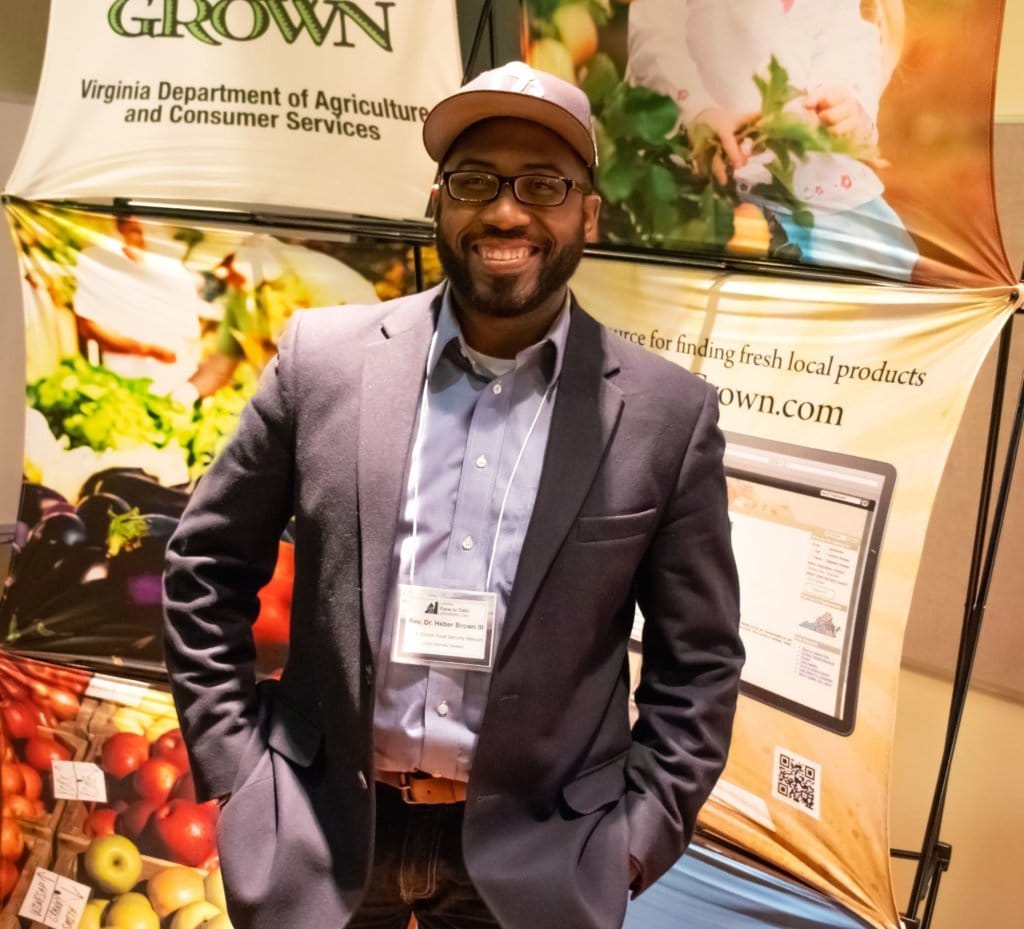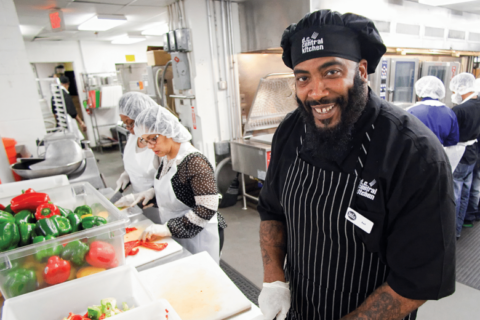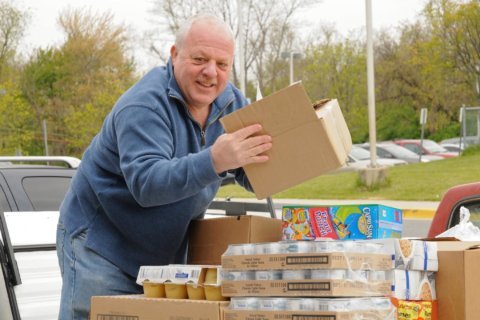During Black History Month WTOP is highlighting black men and women in the area who are doing groundbreaking work to better the community.
WASHINGTON — Several years ago, Rev. Heber Brown III decided he needed to do more than pray.
The now 38-year-old pastor at Pleasant Hope Baptist Church in Baltimore, Maryland, noticed more members of his congregation were suffering from diet-related illnesses. In Baltimore City, one in three residents is obese and 12 percent has Type 2 diabetes — two conditions that disproportionately affect black Americans.
Additionally, 34 percent of black residents in Baltimore live in food deserts (compared to 8 percent of white residents) and don’t have regular access to fresh, healthy and affordable foods.
So Brown turned to seeds, in addition to scripture, and started a garden on a 1,500-square-foot plot of land in front of the church. Today, that garden grows everything from summer squash to kale, and yields 1,100 pounds of produce — all to feed the community that meets weekly to worship.
“It was amazing,” said Brown, who, in addition to starting the garden, partnered with black farmers in the area to bring pop-up markets to the church after Sunday service.
“We saw attendance bump up in our worship, we saw a great energy … and it went so [well] here, that I wondered what would happen if we could spread it through other churches and create a network of churches that do the same thing.”
In 2015, Brown launched The Black Church Food Security Network — a grassroots initiative that empowers black churches to establish a sustainable food system to combat the systemic injustices and disparities that plague black Americans, who, according to data from the U.S. Department of Health and Human Services, are sicker and poorer than non-black Americans.
The network currently operates at more than 10 congregations in Baltimore, most of which are located in the city’s “food priority areas.” There are also participating churches and farms in D.C., Virginia and North Carolina — and the list is growing.
“We have people contacting us from all over — different religions, different parts of the city. … The phone is always ringing, the emails are always coming in from churches saying, ‘Hey, we want in,’” said Brown, who added that he also receives interest from people of different races.
“They see it as important, they recognize that farmers markets are great, but there are gaps that farmers markets are not filling, and African American farmers, in particular, have unique struggles.”
His goal is to meet a need on both ends of the spectrum by supplying under-served communities with the food they need, while moving and marketing the food produced.

‘It just makes sense’
Merging faith and food may seem unconventional to some, but Brown said every time he talks about connecting churches with agriculture, he gets “ready amens and strong head nods.”
“It just makes sense,” said Brown, who finds inspiration for his work from visionaries such as Fannie Lou Hamer, who founded the Freedom Farm Cooperative in 1967, and Vernon Johns.
“Spirituality and agriculture have a deep relationship that is outlined in sacred scripture and that is practiced in weekly gatherings in worship spaces, and so I have no problem getting people to buy into this vision.”
These days, Brown does less digging and harvesting and focuses more on connecting communities with farmers and matching volunteers with various church gardens. He also helps churches figure out how to make use of the space they already own — classrooms, kitchens and land — most of which are only utilized once a week.
“And I think that’s a gross waste of resources,” Brown said.
“If your Monday through Saturday approach can include agriculture initiatives — farming or gardening or supporting a local farmer — that’s a big-time plus.”
It’s also an empowering and sustainable model when it comes to fighting hunger. Too often, food insecure communities receive charity, which is great in emergency situations, but is not a long-term fix.
“And I think solutions for the long haul have to spring from those who are most directly affected by the issue,” Brown said.
“Food is always going to be a priority for our communities. And churches and faith-based organizations, I got a strong hunch, will always be here.”
Brown sees The Black Church Food Security Network “going far into the future,” one community at a time. He dreams of a day when churches across the country have markets where “people can come and praise and worship and sing and get a good chunk of the groceries they need for their household at the same time.”
And for those outside of the black church who want to help, Brown said supporting, not leading, is the most productive strategy.
“If you come in with the mentality that I cannot be fully free until everybody is fully free, it makes for better partners,” he said.
“And if we are strategic in being courageous subversives for each other, then I think the world that our children will inherit will be better than the one that we’re in right now.”







